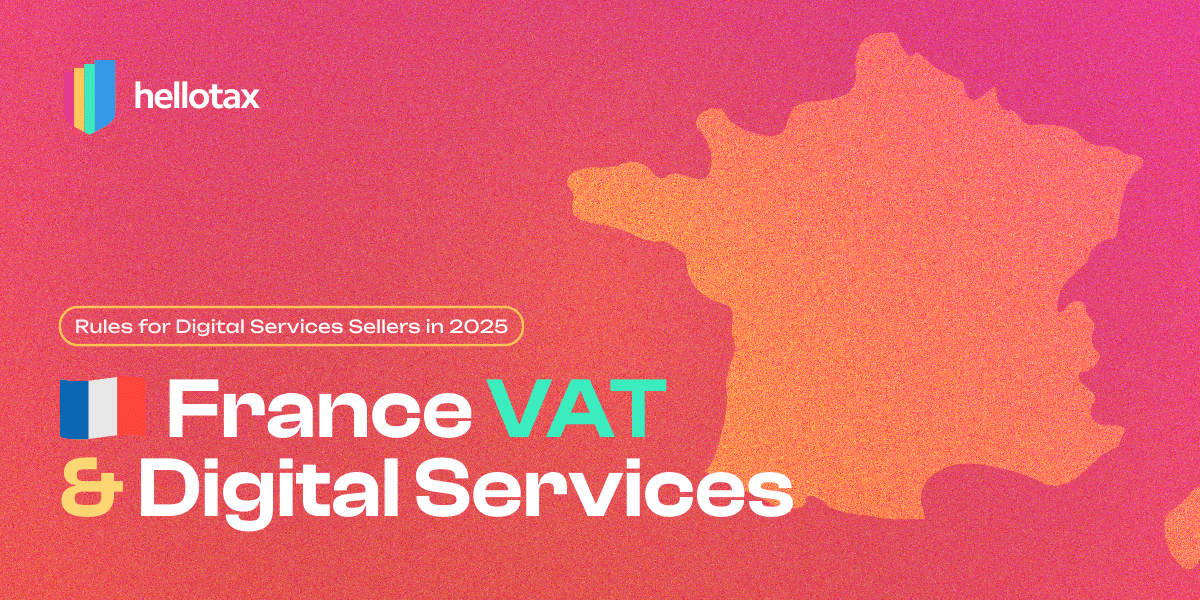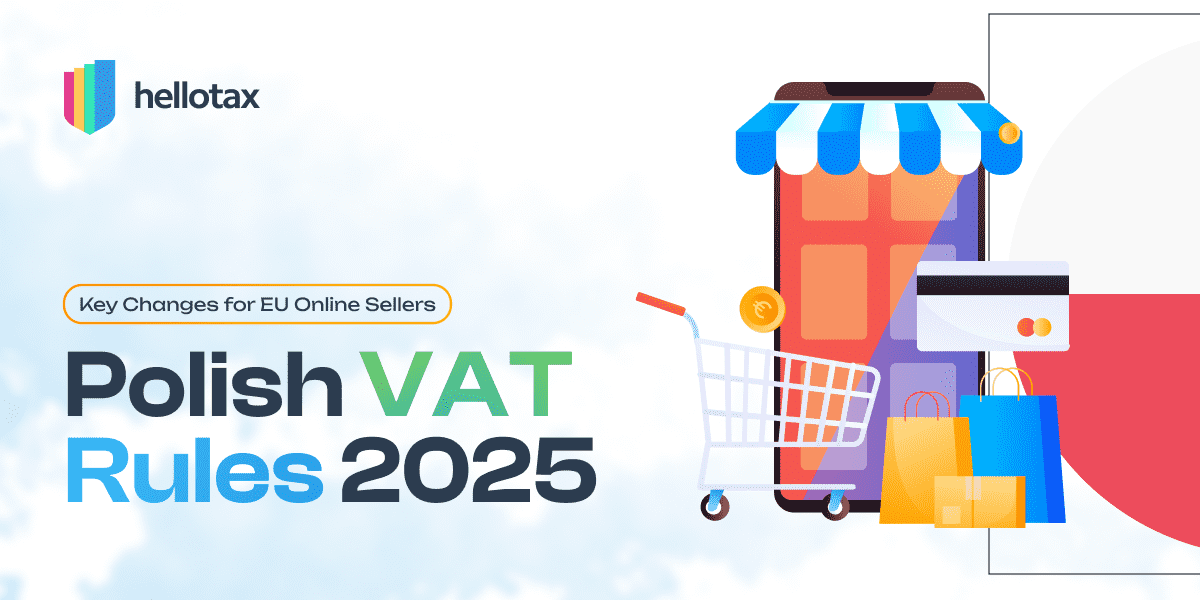In the rapidly expanding digital economy, understanding Value-Added Tax (VAT) regulations for digital services is essential for compliance and business success. As we at hellotax proudly announce the launch of our cutting-edge VAT compliance product tailored for e-commerce sellers, we aim to demystify the VAT obligations for digital service (VAT for Digital Services in the EU) providers within the European Union.
Brenda Varela
Last Updated on 17 January 2025There has been a very important change in the law, please check here for updated info.

What Are Digital Services (VAT for Digital Services in the EU)?
Digital services are broadly categorized as services supplied electronically over the Internet or an automated electronic network with minimal to no human intervention. This includes:
- Software and Cloud Services: Applications, system software, and cloud computing services accessed or downloaded online.
- Digital Content: E-books, music, videos, and digital images provided through streaming or downloadable platforms.
- Online Platforms and Media: Services provided through digital marketplaces or platforms facilitating the exchange of digital products.
- Automated Tools and Services: Tools like online bots, website hosting, and online advertising services.
From a VAT perspective, the EU taxes these services based on the customer’s location, not where the seller is established.
10 000 EUR Threshold Implications
For B2C (Business-to-Consumer) digital services within the EU, VAT is generally determined by the consumer’s location. However, if your total annual sales of digital services to consumers across all EU countries do not exceed €10,000, you can apply VAT based on your business’s location. This threshold simplifies VAT obligations for smaller EU-based e-commerce sellers until their sales exceed this limit.
This threshold does not apply to non-EU businesses. Non-EU sellers must register for VAT in the EU countries where their goods are stored. Alternatively, they may opt for the non-EU One Stop Shop (OSS) scheme, but this is only applicable to electronic services or digital goods.
Understanding these distinctions is crucial for ensuring VAT compliance and avoiding penalties. Misinterpreting the rules can result in non-compliance fines and administrative complications.
Please visit our service page for more information about our Digital Services package.
The Role of Marketplaces
For e-commerce businesses leveraging third-party platforms or marketplaces, these platforms are responsible for VAT collection and remittance, relieving individual sellers from the complexity of handling VAT themselves.
Clarification on Non-Digital Services
Using the Internet to facilitate services does not necessarily categorize them as digital for VAT purposes. Services involving substantial human intervention, even if delivered electronically, are not considered digital services under EU VAT rules. Examples include:
- Goods Ordered Online
- Services by Lawyers and Financial Consultants via Email
- Educational Services Delivered Online by a Teacher
Practical Examples and VAT Implications – VAT for Digital Services in the EU
Understanding various examples helps clarify VAT obligations:
- A PDF document automatically downloaded from a site is a digital service.
- An online course with downloadable PDFs is a digital service.
- Individually commissioned content sent digitally is not considered a digital service if substantial human intervention is involved.
Determining the Consumer’s Location for VAT
Place of Supply for Digital Services:
VAT for cross-border digital services within the EU is determined by the consumer’s location. For instance, a UK expat living in Spain would be subject to the VAT regulations applicable in Spain, not the UK.
Place of Supply ‘Presumptions’:
The EU allows certain presumptions about where digital services are taxed to simplify VAT obligations. These presumptions mean that in some cases, sellers do not need additional evidence to determine the VAT jurisdiction.
- Services are supplied through specific mediums such as telephone boxes, kiosks, wifi hotspots, internet cafes, and locations within hospitality venues like hotels or restaurants. Here, VAT is due where the service is accessed.
- Services provided on transport traveling between countries or through a consumer’s telephone landline or mobile phone depend on the location of access or the country code of the SIM card, respectively.
- For digital content like satellite TV, VAT applies in the location where the hardware (like a decoder) is located or where the viewing card is sent.
Exceptions to Presumptions:
When these presumptions do not apply, sellers must gather and retain evidence to verify the consumer’s normal location. Acceptable evidence includes billing addresses, IP addresses, bank details, and other commercially relevant information like the country code associated with a SIM card.
The Challenge for Small Businesses:
For many micro and small businesses, gathering two matching pieces of evidence to confirm the consumer’s location can be challenging. Using payment service providers can simplify this. At the point of sale, asking for details such as the billing address or telephone number, and confirming this with information provided by the payment service provider, can validate the consumer’s location.
Implications for Educational Services:
The VAT treatment of educational services varies based on the mode of delivery:
- Automated Learning: Services like pre-recorded webinars or courses without live instruction are treated as digital services, with VAT applied based on the consumer’s location.
- Interactive Learning: Services involving significant human interaction, such as live online courses or personalized tutoring, are not considered digital services and are taxed according to the provider’s location.
Role of Digital Platforms:
If you operate a digital platform, understanding whether you’re directly supplying to the consumer or merely facilitating transactions between third parties is crucial for VAT compliance. Generally, if the platform sets the terms, processes payments, or controls delivery, it may need to handle VAT itself. However, if these elements are controlled by the third-party sellers, they are responsible for VAT
Why hellotax?

Book a free consultation
Our VAT experts are happy to help you. Book a free consultation today!
With the launch of our new VAT compliance product, hellotax simplifies these complexities for online sellers. We provide the expertise to ensure you’re charging the correct VAT rates, handling reporting accurately, and automating the process as much as possible through the EU’s One-Stop-Shop (OSS) system.
We invite e-commerce sellers to leverage our product and expertise to navigate the VAT landscape confidently. Stay compliant, minimise risks, and focus on what you do best: growing your business.Join us at hellotax for VAT compliance made simple!!!!!



